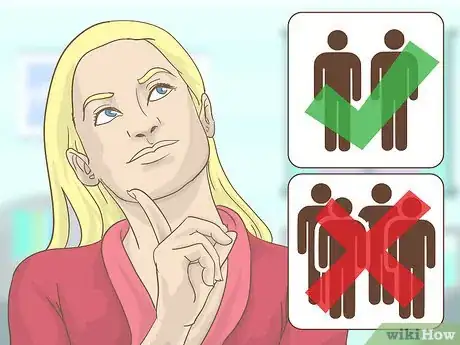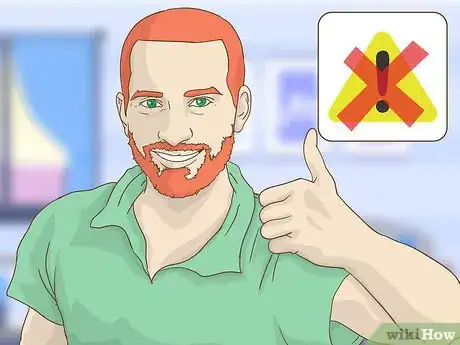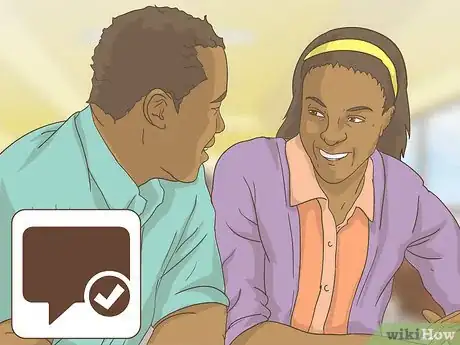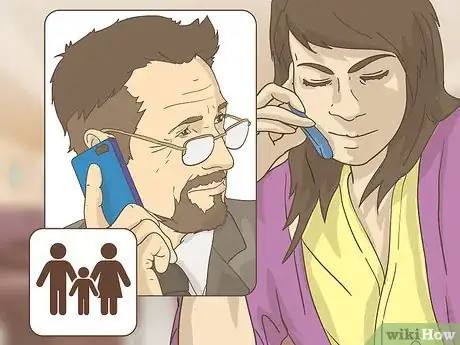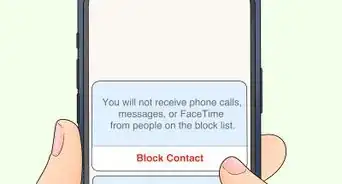This article was co-authored by Ebony Eubanks, MSW, ACSW, CAMS-II. Ebony Eubanks is a Therapist, and Founder and CEO of Peaceful Living Counseling and Professional Services of Philadelphia, PA and in Hockessin, DE. With over a decade of experience providing counseling and coaching to individuals, couples, and groups, she specializes in depression, anxiety, couples work, life guidance coaching, and anger management. Ebony holds a Master’s in Social Work from Temple University and is a member of the Academy of Certified Social Workers. She is a Certified Anger Management Specialist-II, Level II trained Gottman Couples Therapist. and Certified Gestalt Therapist. Ebony also holds additional certifications in Advanced Clinician Training.
This article has been viewed 21,340 times.
Being friends with someone means that you care about their well-being. This can often lead you to feel some obligation to talk your friend out of doing something that you think could be harmful. While this is a fine line to walk, there are ways to have a helpful conversation with your friend. You need to find an appropriate place to talk, be sure to say things carefully, and seek help from others when you need it. Keep in mind that the approach you take will depend on the situation, and a mental health issue will require helping your friend seek the help of a mental health professional.
Steps
Picking a Setting
-
1Invite your friend over for a private conversation. Before you talk with your friend, you should invite them to talk with you. Make sure the conversation will be private.
- Try saying something like, "I want to meet up with you to discuss something important. Can you meet up with me?"
- It is important to ensure that the conversation will be between you and your friend only. Do not invite additional people to the conversation.
-
2Find a quiet location. It is important that your conversation not be interrupted. Think of somewhere that your friend will feel comfortable, and plan to meet there when you both have plenty of time to talk. Cutting the conversation short will not be an effective way to change your friend’s mind.
- For example, if your friend enjoys coffee, you could meet at a coffee shop on a Saturday morning when you are both free.
Advertisement -
3Minimize the people involved. Even if several of your friends are worried about his particular decision, it is best that you each talk to the friend in question separately. If you organize several friends to show up together, this might come across as threatening and overwhelming. Your friend will likely shut down and not listen to any of you in this situation, so plan a one on one conversation.
-
4Stay safe. If for any reason you think that the conversation could escalate to a conflict, you should choose an environment that is not too secluded. You should take every precaution to keep yourself and your friend safe during the conversation. Public places like coffee shops or restaurants are ideal locations.
- For example, if you think that your friend will react in a hostile way, meeting at their home alone might be would be a bad idea.
Communicating Effectively
-
1Know what you want to say. Before you meet your friend, plan out exactly what you want to talk to them about. If you are uncertain or jump from thing to thing, they will feel like the conversation is a critic of them rather than a concern about what they are doing. Having your talking points planned ahead of time lets you keep the conversation moving in an organized and productive way. You can start by asking yourself some simple questions like:
- What is your friend doing?
- Why do they want to do this?
- Do you think you can talk them out of it?
- Is it necessary to discuss it?
-
2Acknowledge their reasons. No matter what your friend is doing, they have a reason for their actions. They may not be good reasons, or make sense to you, but nonetheless they are guiding how your friend behaves. You must pay attention to those reasons, and avoid the urge to dismiss them when your friend presents them to you. Instead, acknowledge that you can see why your friend wants to do something, but that you still disagree with the action.[1]
- For example, if your friend wants to quit school because they don’t like a teacher, you can acknowledge their position without agreeing that they should quit school. Try saying something like “I know what it feels like to have a teacher that you don’t like. It happened to me last year.”
-
3Deliver your message with “I” statements. When delivering a message, you should be careful not to accidentally place blame on the other person. The technique for avoiding accidental blame is called “I” statements. When using an “I” statement, you will tell your friend what you feel, instead of telling them what they are doing wrong.
- For example, instead of saying “You are making a big mistake by dropping out of school,” you should rephrase that message by saying something like “I feel that dropping out of school is not usually a wise decision in any circumstance.”
-
4Back up your position. If you don’t have any backup for your opinion, your friend is likely to just see it as your opinion against theirs. To strengthen your argument, refer your friend to information, studies, or experts that support what you are telling them. This will show your friend that you have done your research, and that they should too.
- For example, you might show your friend a studies that have found that students who finish school make considerably more money than those who don’t.
- As another example, if you want your friend to stop smoking, you can mention the health issues and long-term effects it has on their body.
Reaching Out for Help
-
1Suggest your friend turn to someone they trust. If your friend does not feel comfortable confiding their reasons or actions in you, you can help them by urging them to find someone that they are comfortable with. This person may be a parent, a teacher, or another friend. Some people also feel more comfortable talking to a counselor than someone they know personally.[2]
- You could say something to your friend like “I am worried about what you’re doing. You don’t have to talk to me about it, but you should talk to someone.”
-
2Reach out to a family member. If you are trying to prevent your friend from doing something, it might help to reach out their family. Parents and siblings might be able to influence your friend’s decisions even more than you can. However, you should only do this if you are concerned for your friend’s well-being and not as a way to manipulate a friend.
- For example, it would be appropriate to involve your friend’s parents in a discussion about them quitting school. It would not be okay to involve your friend’s parents if you are trying to convince your friend to hang out with you more.
-
3Consult someone in a position of authority. In the case that your friend is doing (or planning to do) something harmful to themselves or someone else, you need to get help immediately. Reach out to a parent, teacher, counselor, or even the police. Your friend may be mad at first, but you will have saved them from being seriously hurt or spending time in prison.[3]
- For example, if your friend is talking about committing suicide, you should get help immediately.
Warnings
- Don't get angry at your friend. That is not the point of doing this.⧼thumbs_response⧽

